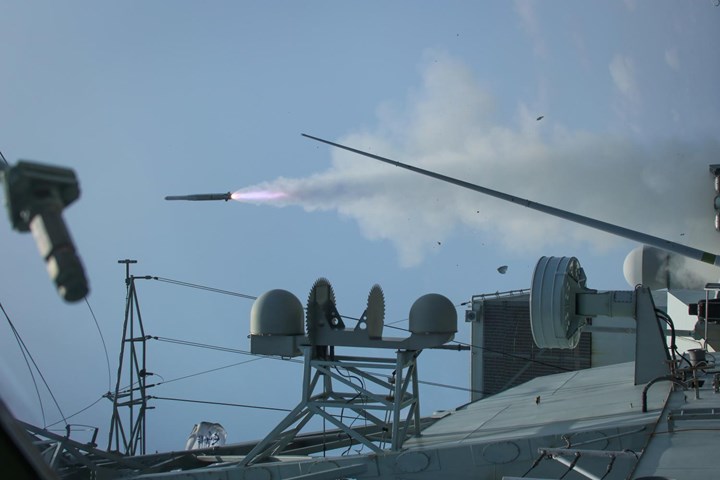GKN, Raytheon reach agreement for composite missile canisters
Per the three-year contract, GKN Aerospace will provide Raytheon with 95 Mk30 missile canisters that are manufactured via a filament winding process followed by vacuum infusion.
Share

ESSM missile. Photo Credit: GKN Aerospace
GKN Aerospace (Redditch, U.K.) reported on Oct. 5 that it has signed a three-year, multi-million contract agreement with aircraft manufacturing company Raytheon Technologies Corp. (Waltham, Mass., U.S.) to supply 95 Mk30 missile canisters for the Raytheon Evolved SeaSparrow Missile (ESSM).
GKN Aerospace’s Fokker business is the sole-source manufacturer of the lightweight canister and leverages a long history of manufacturing high-quality composite missile canisters for Raytheon Technologies.
GKN Aerospace says the Mk30 missile canisters are manufactured via a filament winding process followed by vacuum infusion and can be used for up to 10 missile launches while surviving restrained firing. Refurbishment time between firings is very short, which is said to provide excellent lifecycle costs. The contract will include deliveries starting June 2021 through 2022.
“This follow-on contract reinforces our partnership with Raytheon Technologies, and is a testament to our global workforce collaborating to provide the best technology to partners around the world,” says Krisstie Kondrotis, president of Defense Business, GKN Aerospace.
Related Content
-
TenCate Advanced Armour renamed to Integris Composites
With its rebranding, Integris maintains the ability to develop, test and manufacture ballistic armor and survivability solutions while expanding into new markets where composite solutions can be advantageous.
-
Milliken & Co. partners with MMI Textiles to offer Tegris thermoplastic
The commercial market partnership enables easier access to the Tegris thermoplastic composite fabric for defense customers in the quantities that they require.
-
“Structured air” TPS safeguards composite structures
Powered by an 85% air/15% pure polyimide aerogel, Blueshift’s novel material system protects structures during transient thermal events from -200°C to beyond 2400°C for rockets, battery boxes and more.













